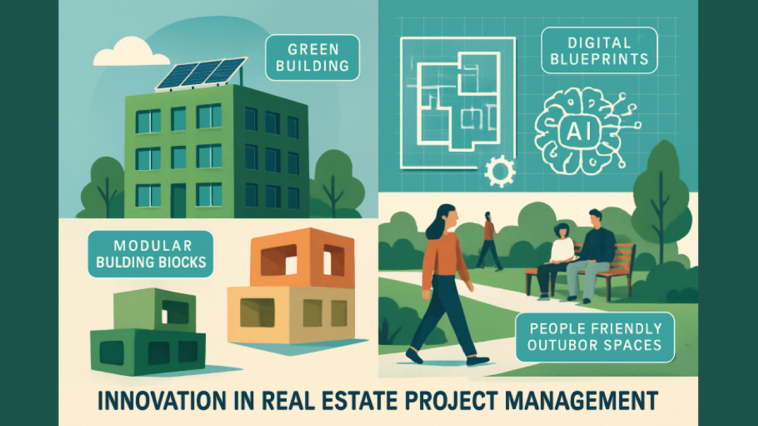This dynamic period marks a push for sustainability, integration of digital intelligence, and a commitment to human-centric design principles. Project managers who proactively embrace these emerging trends are positioned to deliver buildings and resilient communities poised to thrive.
Real estate project management is undergoing a seismic shift, as industry leaders adopt forward-thinking strategies and advanced technologies to outpace evolving market demands. In 2024, firms focused on delivering value—like Rising Realty Partners—are weaving innovation into every stage of development, optimizing present needs while future-proofing assets. Key trends are converging to reshape how projects are conceptualized, executed, and experienced by both investors and occupants.
Embracing Sustainable Practices
Sustainability is now an essential expectation for real estate development. Project managers are amplifying their use of eco-friendly materials, low-emission construction practices, and renewable energy solutions. This not only minimizes environmental impact but also appeals to investors and tenants prioritizing green living. Recycled steel, advanced insulation, and solar PV systems are becoming standard specifications. These efforts align with stringent regulatory requirements and future-proof assets against shifting policy landscapes, ultimately supporting long-term operational savings and value retention.
Integration of Artificial Intelligence
Artificial Intelligence (AI) transforms traditional project management frameworks, using data-driven insights to improve planning and delivery. AI-assisted software predicts cost overruns, sequences workflows for maximum efficiency, and evaluates hundreds of variables to identify risks before they escalate. For instance, machine learning models can assess historical data to optimize resource allocation, drastically reducing delays and cost inflation. Integration of AI not only streamlines logistics but also opens new possibilities for adaptive frameworks that respond in real time to emerging project needs.
Adoption of Modular Construction
Modular methodologies are revolutionizing how structures are conceived and built. Prefabrication in controlled environments ensures high quality, consistency, and material efficiency. Entire building modules are manufactured off-site and then transported for rapid onsite assembly, slashing construction timelines by 20-50% in some cases. This approach significantly reduces neighborhood disruption and onsite waste. Moreover, it allows for precise cost controls and fast adaptation to design changes, making it especially attractive for large-scale residential and commercial initiatives.
Implementation of Smart Technologies
Building automation and IoT-driven features are fast becoming staples in contemporary development. Smart lighting, HVAC, and security systems adapt to occupant behavior and environmental inputs, optimizing energy consumption and enhancing user comfort. These technologies allow for remote management, predictive maintenance, and advanced security—all key priorities in modern real estate. Smart features exponentially increase a building’s functionality and appeal, with studies showing increased lease rates and tenant retention due to intelligent building systems.
Prioritizing Health and Wellness-Oriented Design
User well-being is at the heart of next-generation developments. Health-oriented project planning includes biophilic design, fresh air systems, integrated greenery, and daylight optimization. Amenities such as outdoor fitness spaces, meditation rooms, and flexible work environments support mental and physical health. Enhanced indoor air quality, non-toxic materials, and touchless access are in high demand post-pandemic, directly influencing marketability and tenant satisfaction.
Utilization of Advanced Building Materials
Construction materials like cross-laminated timber, self-healing concrete, and aerogels revolutionize durability and sustainability. These materials enable lighter, taller, and environmentally-friendly structures, allowing for creative architectural expression and faster build cycles. This convergence is rewriting real estate project management in 2024, setting new standards for operational excellence and long-term success.




